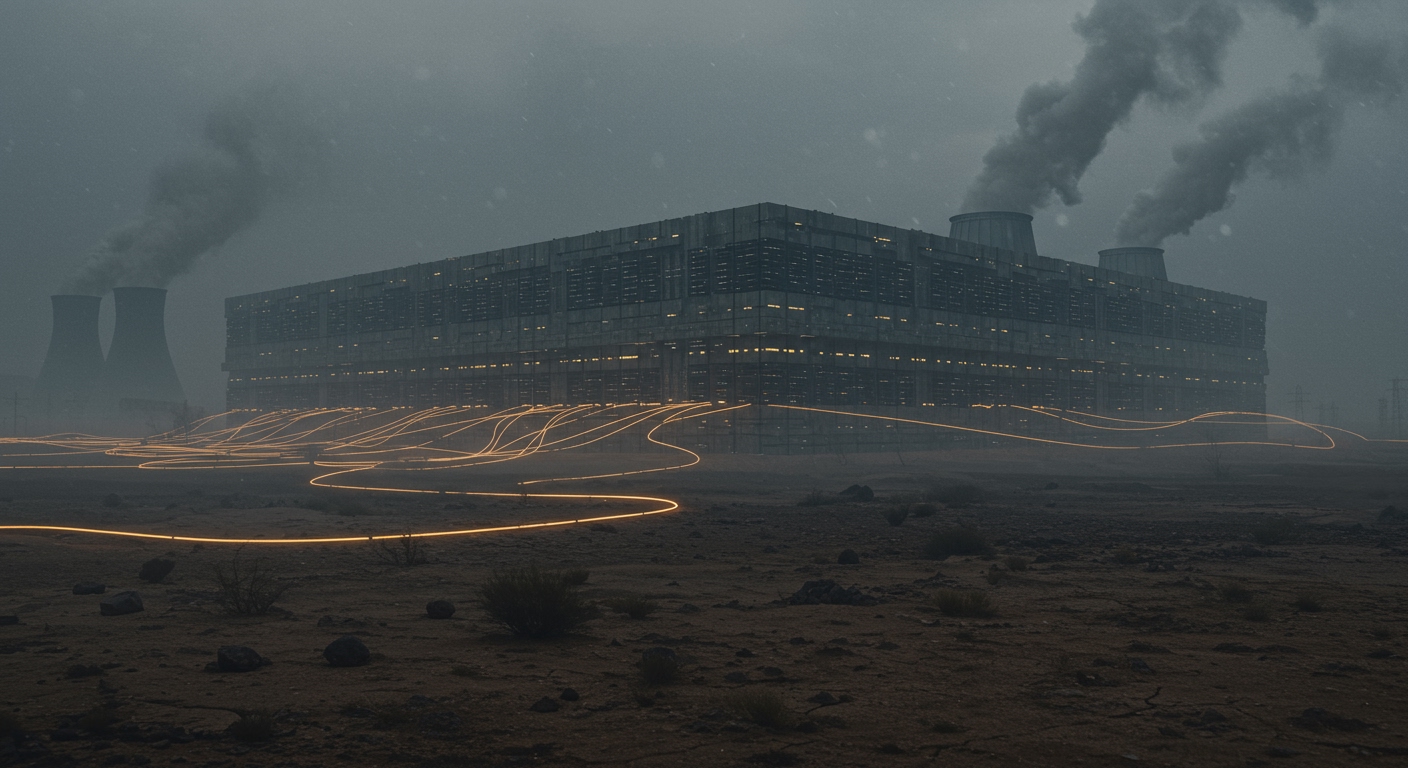The growing frequency and intensity of climate-related disasters are reshaping our planet, affecting ecosystems, economies, and communities worldwide. From devastating wildfires and hurricanes to record-breaking droughts and floods, the consequences of climate change are becoming increasingly severe and difficult to ignore. As global temperatures rise, these disasters highlight the urgent need for climate action, adaptation strategies, and sustainable solutions to protect our planet’s future.
In this article, we will explore the causes behind climate-related disasters, the ways they impact human lives and ecosystems, and the actions we can take to mitigate and adapt to these environmental threats.
Causes of Climate Change Disasters
1. Global Warming and Greenhouse Gas Emissions
One of the primary drivers of climate-related disasters is global warming, fueled by the accumulation of greenhouse gases (GHGs) in the atmosphere. Human activities, such as burning fossil fuels for energy, industrial processes, and deforestation, release large amounts of carbon dioxide (CO₂), methane (CH₄), and other GHGs. These gases trap heat in the Earth’s atmosphere, causing global temperatures to rise.
The increase in temperature has a cascading effect on weather patterns, water cycles, and seasonal changes, making extreme weather events like heatwaves, droughts, and intense storms more frequent and severe.
2. Deforestation and Land Use Changes
Deforestation and changes in land use contribute to climate change and exacerbate the risk of disasters. Forests absorb CO₂, serving as crucial carbon sinks that help regulate atmospheric CO₂ levels. When forests are cleared for agriculture, logging, or urban development, this carbon is released into the atmosphere, accelerating global warming.
Additionally, deforestation disrupts local ecosystems, increases soil erosion, and reduces biodiversity, making areas more vulnerable to landslides, floods, and droughts. The loss of natural vegetation also decreases the land’s ability to retain water, which can intensify the impact of heavy rainfall.
3. Ocean Warming and Sea Level Rise
As global temperatures increase, the world’s oceans absorb much of this excess heat, resulting in ocean warming. Warmer oceans contribute to the intensification of tropical storms, hurricanes, and typhoons, as these storms draw energy from warm ocean waters. Ocean warming also affects marine ecosystems, leading to coral bleaching and the loss of biodiversity.
Sea level rise, caused by the melting of polar ice and glaciers and the thermal expansion of seawater, is another significant impact. Rising sea levels increase the risk of coastal flooding, erosion, and saltwater intrusion into freshwater sources, endangering coastal communities and ecosystems.
4. Altered Weather Patterns
Climate change disrupts established weather patterns, leading to unpredictable and extreme events. For example, shifting jet streams can cause prolonged periods of heavy rain or drought, impacting agriculture, infrastructure, and ecosystems. These altered weather patterns are increasingly leading to extreme precipitation events, flash floods, and unexpected cold spells or heatwaves.
Major Types of Climate Change Disasters
1. Wildfires
Wildfires have become more frequent and intense, particularly in regions with prolonged dry seasons and high temperatures. Climate change-induced heatwaves and droughts create dry, combustible conditions that increase the likelihood of wildfires. Once started, wildfires can spread rapidly, destroying homes, forests, and habitats, and releasing large amounts of CO₂ into the atmosphere, further contributing to global warming.
Notable examples include the California wildfires in the United States, the Australian bushfires, and wildfires in the Amazon rainforest—all of which have had devastating effects on ecosystems, air quality, and human health.
2. Hurricanes and Cyclones
Warmer ocean temperatures are fueling more intense and destructive hurricanes, cyclones, and typhoons. These powerful storms bring heavy rainfall, high winds, and storm surges that can cause catastrophic flooding and infrastructure damage. Coastal areas are particularly vulnerable, facing the dual threat of stronger storms and rising sea levels.
Hurricanes such as Katrina, Harvey, and Maria have caused billions of dollars in damage and displaced thousands of people, highlighting the vulnerability of coastal cities and communities to climate-driven disasters.
3. Floods and Extreme Precipitation
As temperatures rise, so does the amount of moisture that the atmosphere can hold, leading to heavier rainfall and more frequent flooding. Climate change has increased the frequency of flash floods, river flooding, and extreme precipitation events. Urban areas are particularly at risk, as impermeable surfaces like roads and buildings prevent water from being absorbed into the ground, leading to dangerous flooding conditions.
The devastating floods in Europe, Southeast Asia, and the United States in recent years underscore the destructive power of extreme precipitation and the urgent need for flood management and mitigation strategies.
4. Droughts and Water Scarcity
Climate change is exacerbating droughts in many parts of the world, leading to water shortages, crop failures, and economic hardship. Droughts threaten food security, reduce water availability, and increase the risk of desertification in arid regions. The effects of prolonged droughts are particularly severe in areas heavily dependent on agriculture, as they lead to crop failures, food price increases, and the displacement of rural communities.
Countries in Africa, the Middle East, and the American Southwest have experienced unprecedented droughts, highlighting the importance of sustainable water management in a changing climate.
Impact of Climate Change Disasters on Human and Environmental Health
1. Economic Loss and Infrastructure Damage
Climate-related disasters have significant economic impacts, costing billions of dollars in damage to infrastructure, homes, and businesses. Rebuilding after these events requires substantial resources and can strain public finances, especially in low-income countries. Industries such as agriculture, tourism, and insurance are particularly affected, as frequent disasters disrupt production, supply chains, and property values.
2. Public Health Risks
Climate change disasters pose numerous health risks, including respiratory problems from wildfire smoke, injuries from extreme weather events, and waterborne diseases following floods. Heatwaves, in particular, increase the risk of heatstroke, dehydration, and mortality, especially among vulnerable populations like the elderly, young children, and people with pre-existing health conditions.
Moreover, disasters often strain healthcare systems, making it difficult for affected communities to access timely medical assistance.
3. Displacement and Migration
Climate-related disasters are a leading cause of displacement, forcing millions of people to leave their homes in search of safety and stability. Floods, wildfires, and sea level rise are major drivers of displacement, particularly in coastal areas and regions susceptible to drought. Climate migration has profound social implications, often leading to overcrowding, strained resources, and social tensions in receiving areas.
4. Loss of Biodiversity and Ecosystem Services
Climate change disasters can devastate ecosystems, leading to the loss of biodiversity and the disruption of ecosystem services that are vital for human survival. Wildfires, droughts, and extreme weather events damage habitats, push species to extinction, and reduce the natural benefits that ecosystems provide, such as clean water, pollination, and carbon storage.
Biodiversity loss weakens ecosystems, making them more vulnerable to future climate change impacts and reducing their ability to adapt.
Mitigating Climate Change Disasters: Strategies for a Sustainable Future
1. Reducing Greenhouse Gas Emissions
Reducing GHG emissions is crucial to slowing global warming and mitigating the frequency and severity of climate-related disasters. Transitioning to renewable energy sources like solar, wind, and hydropower can significantly lower emissions from the energy sector. Additionally, promoting energy efficiency, investing in green technology, and reducing deforestation can help reduce the atmospheric concentration of GHGs.
2. Building Climate-Resilient Infrastructure
Adaptation strategies are essential for coping with the impacts of climate change. Climate-resilient infrastructure, such as flood-resistant buildings, sea walls, and sustainable drainage systems, can protect communities from extreme weather events. Incorporating resilience into urban planning and investing in green infrastructure, like parks and wetlands, can also help cities manage stormwater, reduce heat, and improve air quality.
3. Disaster Preparedness and Early Warning Systems
Investing in early warning systems can help communities prepare for and respond to climate-related disasters. Timely alerts, evacuation plans, and public education on disaster preparedness are critical in reducing loss of life and property. Communities that are equipped with comprehensive emergency response plans can recover more effectively after disasters.
4. Sustainable Land and Water Management
Sustainable land and water management practices can help mitigate the effects of climate change on natural resources. Reforestation, afforestation, and soil conservation improve soil health, reduce erosion, and increase carbon sequestration. Similarly, sustainable water management practices, such as water recycling, efficient irrigation, and conservation programs, are essential for addressing water scarcity and supporting agricultural resilience.
5. International Collaboration and Policy Action
Climate change is a global issue that requires coordinated international action. Agreements like the Paris Agreement aim to bring countries together to reduce emissions, set climate targets, and share resources for adaptation. International collaboration is essential for developing climate solutions, transferring technology, and supporting vulnerable communities in adapting to climate change impacts.
Conclusion
The rise in climate change-related disasters poses a grave challenge to humanity, ecosystems, and economies. Addressing these threats requires a multifaceted approach that includes reducing greenhouse gas emissions, building resilient infrastructure, preparing for disasters, and fostering international collaboration. By investing in sustainable practices and prioritizing climate resilience, we can work toward a future where communities are better prepared to withstand and adapt to the challenges posed by a changing climate.
As we confront the realities of climate change, proactive measures, responsible policies, and a commitment to sustainability will be essential in safeguarding our planet for future generations.
FAQs
1. What are the main causes of climate-related disasters?
The main causes include global warming due to greenhouse gas emissions, deforestation, ocean warming, and altered weather patterns caused by climate change.
2. How do climate change disasters affect human health?
Climate disasters impact health through heat-related illnesses, respiratory issues from wildfire smoke, waterborne diseases after floods, and increased mortality from extreme weather events.
3. What is the role of renewable energy in combating climate change?
Renewable energy reduces greenhouse gas emissions by providing clean alternatives to fossil fuels. Transitioning to renewables is essential for mitigating global warming and its associated disasters.
4. How can communities prepare for climate change disasters?
Communities can invest in climate-resilient infrastructure, establish early warning systems, promote public awareness, and create disaster response plans to improve resilience.
5. Why is international cooperation important in addressing climate change?
Climate change is a global challenge that requires coordinated action, resource sharing, and policy alignment to achieve meaningful progress and support vulnerable regions in adapting to its impacts.













